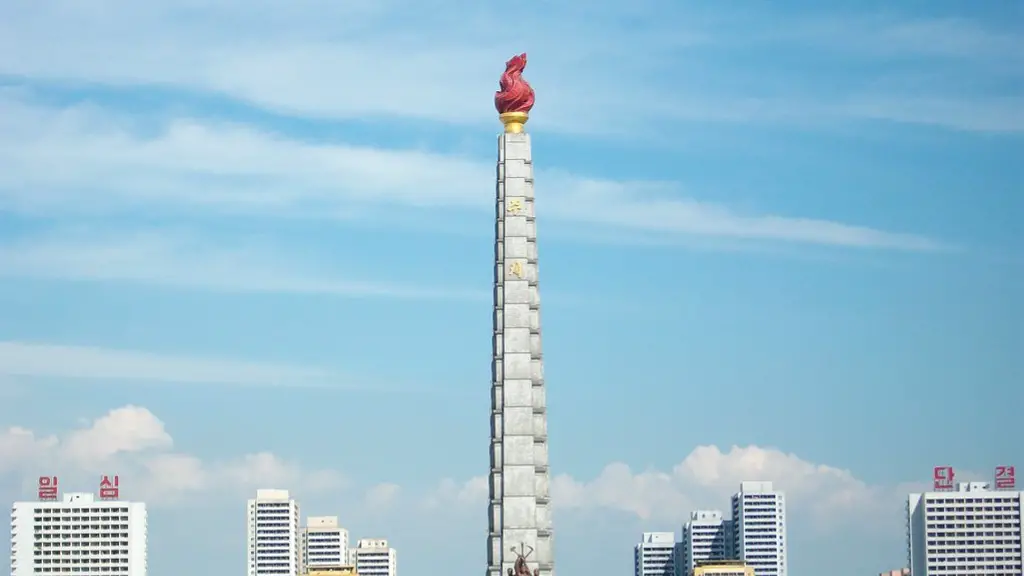How Did We Respond to North Korea?
It was once said that the North Korean regime “just needs a bit of understanding, justice, and reciprocity” before mutual trust would be achieved. However, the events of the past few years have told a very different story. With increasingly outrageous displays of military threats and nuclear proliferation, how did the world respond to the North Korean regime’s rapidly changing environment?
In 2017, North Korea fired ballistic missiles into their own coast and the waters surrounding Japan. Shortly thereafter, Kim Jong Un tested two intercontinental ballistic missiles with a potential range of over 5,000 miles. It was the first time such long-range missiles had successfully been tested by Pyongyang. In response, the United Nations Security Council imposed tougher economic sanctions on North Korea, particularly blocking key imports and exports.
These sanctions placed a heavy burden on the already struggling economy of North Korea as the country’s already precarious economic situation deteriorated even further. The UN even put in place a ban on certain exports such as coal, iron and other resources estimated to be worth nearly $3 billion annually.
The United States also responded to North Korea’s increasing belligerence in the form of both verbal and physical responses. The US said it was ready to use its “considerable military capabilities” if North Korea did not make any concessions. President Trump also promised to use “fire and fury” if North Korea did not back down.
The US also increased its military presence in the region. US Navy destroyers were mobilized and sent to the Korean peninsula to deter the North Koreans. Additionally, the US and South Korea conducted joint military exercises across South Korean air and ground space. These maneuvers were meant to show a unified front against Kim Jong Un’s weapons and threats.
However, these efforts did not appear to have the intended result. North Korea “redoubled its efforts” by continuing to fire missiles and threaten other countries with its military prowess. Despite more sanctions and international pressure, North Korea seemed undeterred.
What Has North Korea Done Since?
In 2018 North Korea held its historic summit with South Korea and the United States, against all odds. During this summit North Korean leader Kim Jong Un committed to the complete denuclearization of the Korean Peninsula. This was welcomed as a monumental breakthrough, as decades of stalemate were suddenly and unexpectedly brought to an end.
However, the situation has once again become precarious, as North Korea has refused to proceed with any form of denuclearization, and has instead continued to consolidate its nuclear and ballistic arsenal. In November of 2019, North Korea tested yet another intercontinental ballistic missile, this time with a range of close to 6,500 miles. This test was seen as a deliberate warning to both the South Korean and the US governments. More recently, in May of this year, Kim Jong Un tested his third ICBM.
In the wake of these threats, the US and the UN have maintained the existing economic sanctions against North Korea. The UN Security Council has also passed new sanctions which include a ban on refined petroleum products and crude oil imports. The US has further increased its military presence in the region, with the US Air Force opening its first-ever drone base in South Korea.
Despite all these measures, North Korea has refused to temper its threats, and the international community seems no closer to a satisfactory resolution than it ever has been.
What Impact Has This Had?
The ongoing international standoff over North Korea has had far-reaching consequences. North Korea’s refusal to abandon its nuclear ambitions has had a destabilizing effect on the entire region. It has also had a profound impact on the economies of both North and South Korea, with businesses and markets feeling the pressure of international sanctions.
Additionally, there have been reports of human rights abuses in North Korea, with the UN’s Commission of Inquiry on Human Rights in North Korea finding “systematic, widespread and gross human rights violations.” It is believed that these abuses are linked to the regime’s efforts to control its own people and prevent open dissent.
This has also had an impact on North Korea’s diplomatic relations with its neighbors. While North and South Korea have recently held talks, it is still uncertain whether any actual progress will be made. In addition, North Korea’s relationship with the United States is still fraught, with President Trump and Kim Jong Un exchanging belligerent rhetoric on a regular basis.
How Can We Make Progress?
It might not be possible to answer the question “What did we do to North Korea?” until we ask “How can we make progress?”. After all, the issue of North Korea’s nuclear capabilities is of utmost importance and requires an equally important solution.
The first step to making progress would be for the international community to come together and create a unified front against North Korea. It is vital that we put our diplomatic and economic differences aside and maintain the same pressure on the enemy. All political powers must realize that the most effective way to deal with North Korea is through strict compliance with the UN sanctions and pressure that is necessary.
Secondly, it would be prudent to consider toning down the rhetoric and implementing more diplomatic solutions. The US and its allies must understand that if they are to find a peaceful solution, they must be more flexible and open to negotiation. For instance, the US might consider offering economic incentives to North Korea in exchange for the country agreeing to abandon its nuclear and missile programs.
Thirdly, it is essential that all negotiating parties take into account the economic, diplomatic and human right implications of the current situation. Finding a path forward must involve an understanding that any solution must not only take nuclear disarmament into consideration, but also the human right implications of the conflict.
What Will Happen In The Future?
The future of the Korean Peninsula remains uncertain. As long as the current international diplomatic efforts continue to falter and North Korea continues to develop its nuclear capabilities, it is likely that tensions in the region will remain high. However, despite the current obstacles, it is still possible for peace to prevail over war.
The US and its allies should consider taking a more proactive approach, such as peace talks on a bilateral and multilateral level. These talks should include not only North Korea and its neighbors, but also other major powers such as China, Russia and Japan. The international community could also consider providing more economic incentives to North Korea, in exchange for meaningful concessions.
It is also important to consider the potential implications of war, not only on the Korean Peninsula but to the world. The cost of war is incalculable in terms of both human lives and economic resources. These must be taken into consideration if any meaningful resolution is to be achieved.
What Can We Do To Help?
The key to resolving the North Korean conflict rests in the hands of the international community. We must recognize the gravity of the situation and work together to find a peaceful resolution.
The first step is to ensure that the UN sanctions are being adhered to and that they remain in place. Sanctions are the most effective way to apply pressure on the North Korean regime and it is essential that we continue to do so.
It is also important for citizens around the world to become informed about the situation and voice their support for dialogue and progress. We must not forget that North Korea is a nation with millions of people, with families and lives just like ours. We must use our collective voice to urge governments around the world to seek diplomatic solutions and work towards a peaceful end to the conflict.
Finally, we must remember that progress is possible and that North Korea can choose a different path. We must use every opportunity we have to advocate for a peaceful resolution of the situation and support our world leaders in ensuring a brighter future for the people of North Korea.

